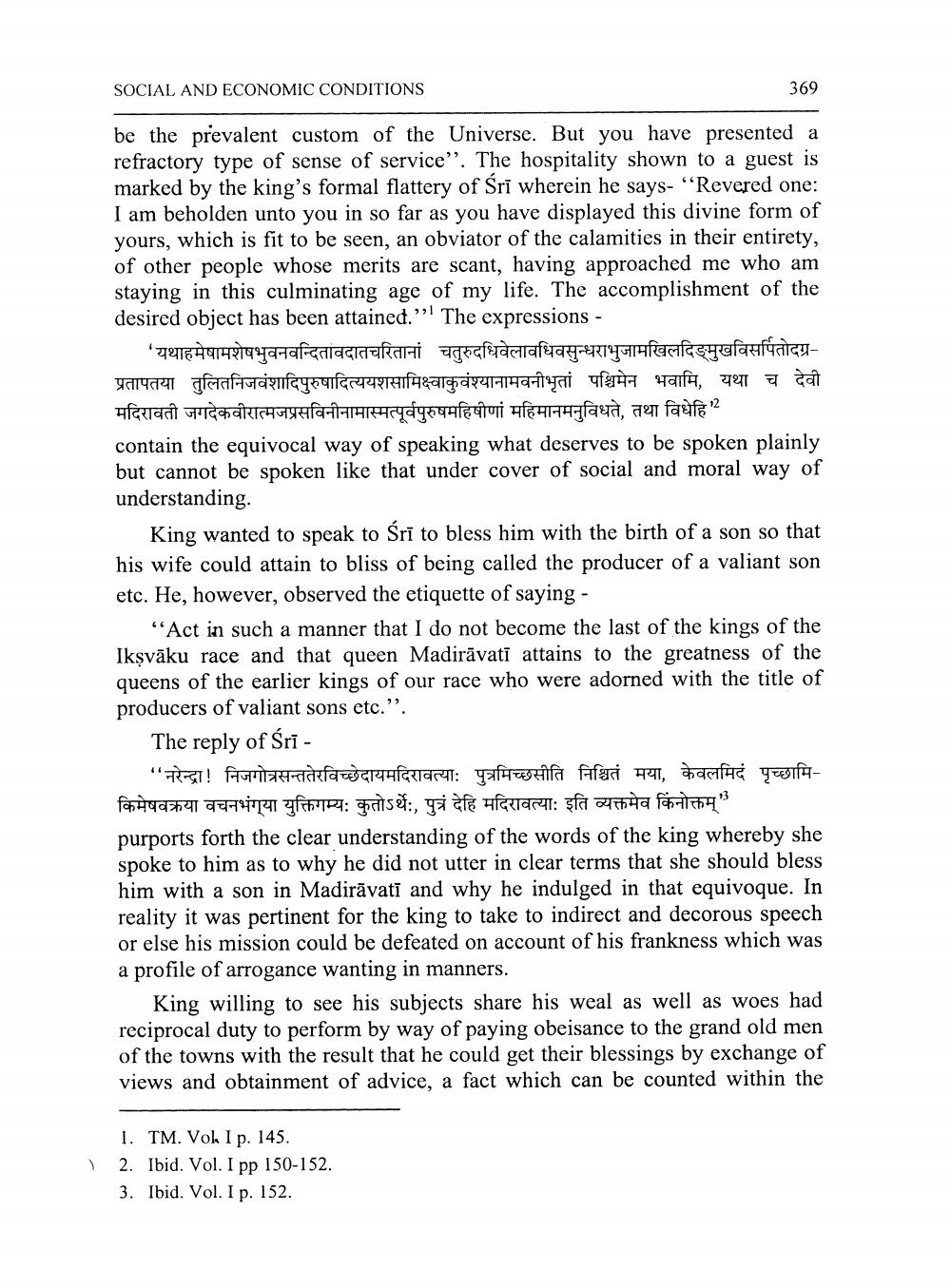________________
SOCIAL AND ECONOMIC CONDITIONS
369
be the prevalent custom of the Universe. But you have presented a refractory type of sense of service". The hospitality shown to a guest is marked by the king's formal flattery of Śrī wherein he says- "Revered one: I am beholden unto you in so far as you have displayed this divine form of yours, which is fit to be seen, an obviator of the calamities in their entirety, of other people whose merits are scant, having approached me who am staying in this culminating age of my life. The accomplishment of the desired object has been attained." The expressions -
'यथाहमेषामशेषभुवनवन्दितावदातचरितानां चतुरुदधिवेलावधिवसुन्धराभुजामखिलदिङ्मुखविसर्पितोदग्रप्रतापतया तुलितनिजवंशादिपुरुषादित्ययशसामिक्ष्वाकुवंश्यानामवनीभृतां पश्चिमेन भवामि, यथा च देवी मदिरावती जगदेकवीरात्मजप्रसविनीनामास्मत्पूर्वपुरुषमहिषीणां महिमानमनुविधते, तथा विधेहि 2
contain the equivocal way of speaking what deserves to be spoken plainly but cannot be spoken like that under cover of social and moral way of understanding.
King wanted to speak to Śrī to bless him with the birth of a son so that his wife could attain to bliss of being called the producer of a valiant son etc. He, however, observed the etiquette of saying
"Act in such a manner that I do not become the last of the kings of the Ikṣvāku race and that queen Madirāvatī attains to the greatness of the queens of the earlier kings of our race who were adorned with the title of producers of valiant sons etc.".
The reply of Śrī -
‘“नरेन्द्रा ! निजगोत्रसन्ततेरविच्छेदायमदिरावत्याः पुत्रमिच्छसीति निश्चितं मया, केवलमिदं पृच्छामिकिमेषवक्रया वचनभंग्या युक्तिगम्यः कुतोऽर्थेः, पुत्रं देहि मदिरावत्याः इति व्यक्तमेव किंनोक्तम् ”
purports forth the clear understanding of the words of the king whereby she spoke to him as to why he did not utter in clear terms that she should bless him with a son in Madirāvatī and why he indulged in that equivoque. In reality it was pertinent for the king to take to indirect and decorous speech or else his mission could be defeated on account of his frankness which was a profile of arrogance wanting in manners.
King willing to see his subjects share his weal as well as woes had reciprocal duty to perform by way of paying obeisance to the grand old men of the towns with the result that he could get their blessings by exchange of views and obtainment of advice, a fact which can be counted within the
1. TM. Vok I p. 145.
2. Ibid. Vol. I pp 150-152.
3. Ibid. Vol. I p. 152.




